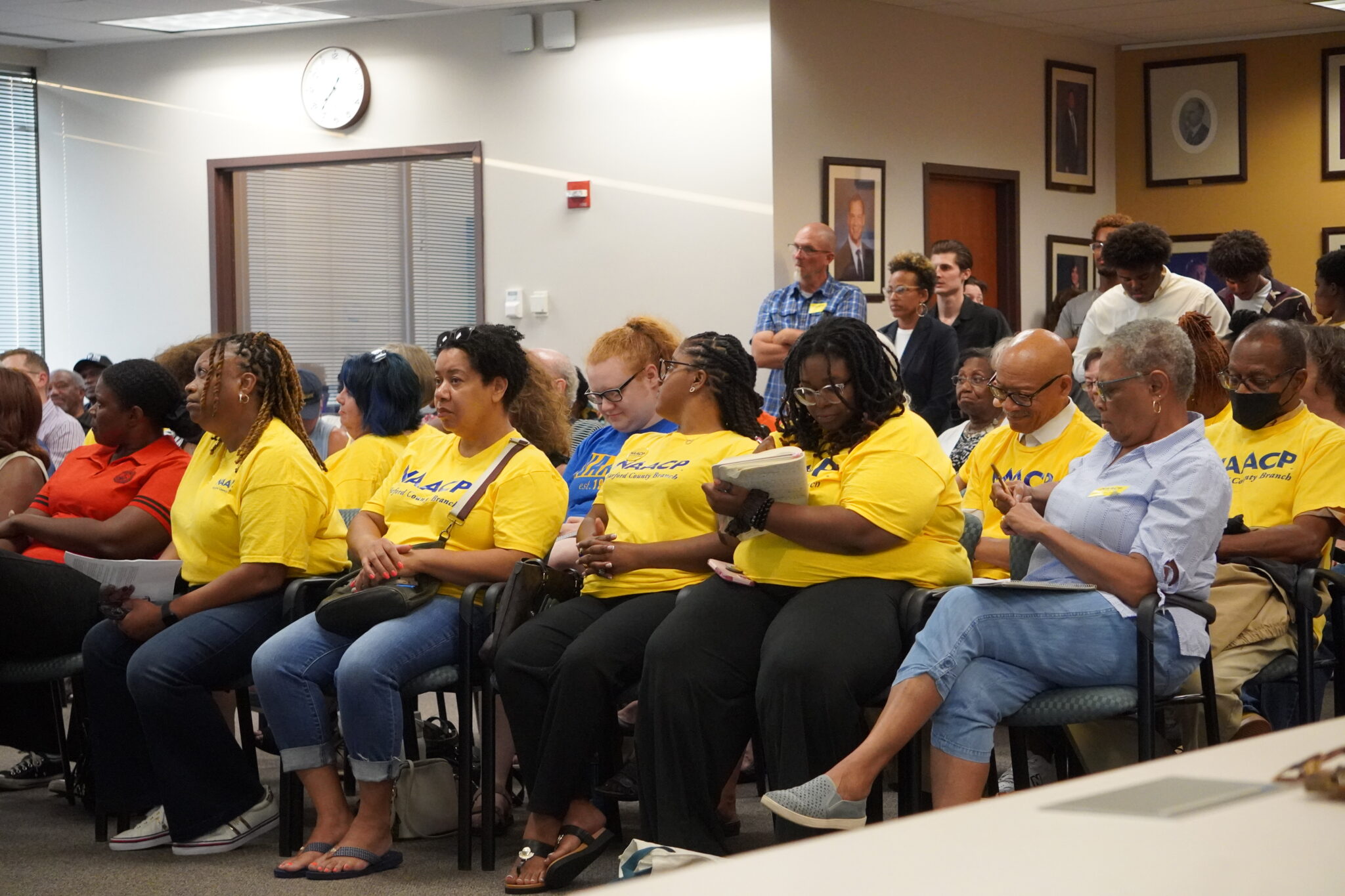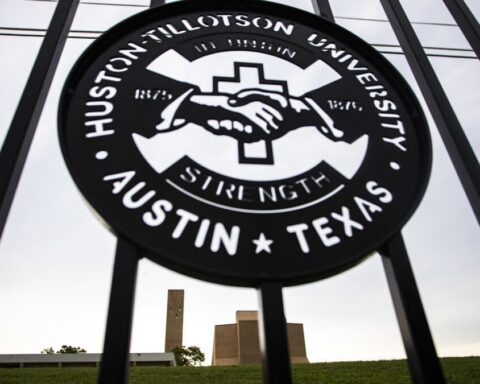By William J. Ford
The Harford County Board of Education voted unanimously early Tuesday to restore an Advanced Placement course on African American studies, just weeks after canceling the class over concerns it lacked “positive narratives” and perpetuated “a narrative of victimhood.”
The vote followed at least 2 1/2 hours of public comment from about 60 speakers, most of whom urged the board to let the course continue.
“It has bridged the gap between Black and white, left and right, or right and wrong by creating a safe space for open dialogue, discussion and communication,” said Hayven Rowson, 16, a rising senior at Aberdeen High School, and one of three students who spoke. “Having this course available has meant everything to me and more.”
The approval came with minor revisions, the biggest of which is the inclusion of various projects that students will have to do, such as studying a current or historical figure or an issue, in addition to the final exam that can earn students college credit.
The approval means the course, which was offered as a pilot course in three county high schools last year, will be part of the regular AP courses offered in the county next year. School system officials said 67 students took the course last year, and that number has ballooned to about 200 who have signed up for the course in the fall.
The vote came three weeks after the board voted 5-4 at its June 24 meeting against continuing the pilot course.
Board members noted then that there is already a non-AP African American history course on the books. Some members raised concerns that the AP course emphasizes an “oppressor vs. oppressed” narrative, portrayed police in a “negative light,” lacked “positive narratives” and lacked “full context” on topics like the Black Panther Party and Malcolm X.
Some board members still had questions at the Monday meeting that stretched into Tuesday morning.
School board member Terri Kocher, who voted against the course last month, asked what the difference is between the regular African American studies course versus the AP course. And she asked whether students in the course will feel that Black people are still oppressed.
John Mobley, a social science teacher at Aberdeen High School who taught the AP pilot course in the 2023-23 school year, told Kocher the AP course has more rigor and writing. As for how students in the course will feel, he said: “I can’t answer that question for them. That’s something through education that they will come to that conclusion.”
“My job as an educator is to present the information and for them to determine how they feel. I can’t legislate that,” Mobley said.
Mobley cited “Project 2025,” the presidential transition template being developed by the conservative Heritage Foundation.
“I don’t want to read it, but I have to because as a responsible educator, I must be prepared for anything that walks into my classroom,” he said. “I don’t mind controversy.”
Kocher then asked about the discussion of conservative Blacks such as U.S. Supreme Court Justice Clarence Thomas and U.S. Sen. Tim Scott (R-South Carolina).
“We don’t shy away from diverse perspectives … to challenge students to think critically, to challenge their assumptions, to poke holes in various arguments,” said Erin Lange, supervisor of social sciences for Harford County schools.
Rob DeLeva, principal at Bel Air High School, which offered the course, said about 46% of the students who took the course last year – at his school, Aberdeen and Joppatowne high schools – marked the first time taking an AP course. This upcoming school year, about 39% of the students would be taking AP course for the first time.
“As an administrator, these are the types of new opportunities that we love being able to offer our kids,” he said. “We want them to drive the courses that we teach.”
Some critics speak out
The vote followed hours of public comment from about 60 people registered to speak. Not everyone spoke in support of the African American studies course.
David Eltringham, a county resident, said this type of course comes with “a distortion of history and facts to create a narrative that is ultimately tearing down our society and is intentional. ”
“The agenda is using young impressionable minds to accomplish this,” he said. “My heart aches for the students who are being led to believe this curriculum and agenda that has its roots in Marxism.”
But most speakers in the overflow crowd, which included current and former Harford County public school students, educators and community leaders, were there to support the course.
“African American history is American history,” said Felicia M. Hopkins, who represents the Youth Enrichment Society of Harford County. “These stories are vital to understanding the complexities and progress of our country.”
Rodney Johnson, a 30-year educator who has taught Advanced Placement courses for 10 years, told the board he read “The Adventures of Huckleberry Finn” as a high school junior in Harford County public schools. Johnson, who is Black, noted that the book has the N-word 219 times, a fact noted in a report by Pen America.
“If students of color and every student can read Huck Finn, then certainly reading about African American history and African American experiences is not a bridge too far,” Johnson said.
For those who stayed beyond midnight to hear the board’s decision, several people shook hands, hugged and smiled.





